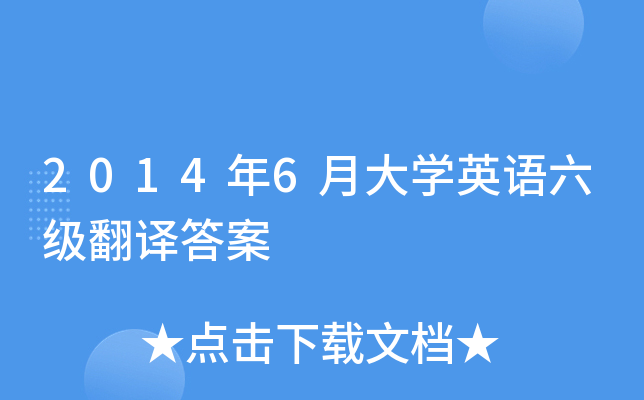Beijing will plan to invest 760 billion to control pollution in the future, starting with reducing the emission of PM 2.5. This newly published plan is designed to reduce four major pollution sources, including exhaust gas from 5,000 thousand motor vehicles, coal-burning in surrounding places, sandstorms from the north and local building dust. What’s more, another 85 billion yuan is used to build or update the depositing facilities of garbage and sewage of the city. And 30 billion will be used to support forest planting program in next three years.
The municipal government also plans to build some plants for cycling water, banning illegal constructions to improve the environment. In addition, Beijing will punish those who violate the rules of emission-reduction more harshly.
【翻译2答案】
Chinese Academy of Science recently published an annual report on its latest scientific discoveries and the outlook for the next year. The report involves three parts: one report on science development, the second on high-tech development and the other one on China’s sustainable development strategy. The first report includes the latest discoveries by China’s scientists, such as the new particle research and their breakthrough in the study of H7N9 virus. More importantly, this report even highlights some problems that deserve attention in the next few years. The second one publishes some heated fields in applied science such as the 3-dimension print and artificial organ research. The third calls upon people to enhance the top design so that the structural obstacles in industrial upgrade may be eliminated, energy saved, and emission reduced.
【翻译3答案】
The Chinese hot words usually reflect the social and cultural change, some of them are increasingly popular with the foreign media. For instance, although the Tuhao and Dama are old words, they have acquired new meaning.
Tuhao (local tyrants) referred to the village landlords who oppressedthe peasants and servants in the old days, but now it is used to refer to the rich who spends money like water or likes to showing off. That is to say, the local tyrants have wealth but no taste. Dama (aunt) is a calling to middle-aged women, but now it especially refers to the Chinese women who buy large amount of gold when gold tumbled recently.
These two words are likely to be included in the new OXford English Dictionary. Until now, about 120 Chinese words have added in the OXford English Dictionary, becoming a part of the English language.
- 2025年12月福建英语六级考试时间、流程、内容、题型及分值比例(12月13日下午)
- 2025年12月福建英语六级准考证打印入口:https://cet-bm.neea.edu.cn/(
- 2025年12月福建英语四级考试时间、流程、内容、题型及分值比例(12月13日上午)
- 2025年12月福建英语四级准考证打印入口:https://cet-bm.neea.edu.cn/(
- 2025年12月四川英语六级考试时间、流程、内容、题型及分值比例(12月13日下午)
- 2025年12月四川英语六级准考证打印入口:https://cet-bm.neea.edu.cn/(
- 查看大学英语四六级考试全部文档 >>


